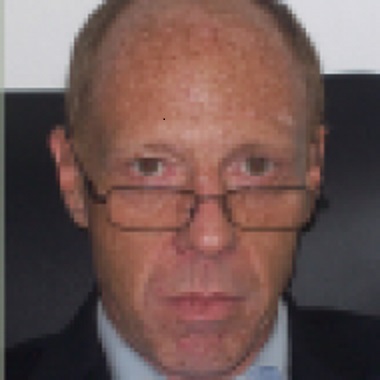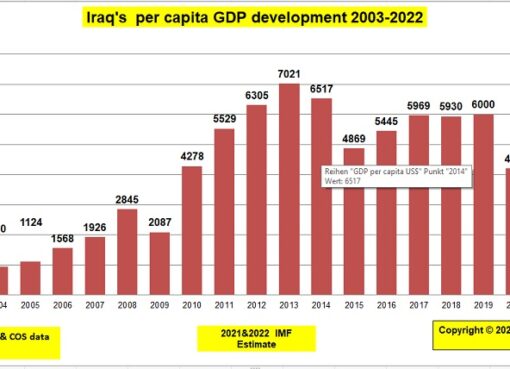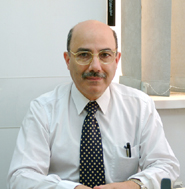With its vast oil and gas resources, there is no fundamental reason why Iraq cannot become a world-class producer of high-value petrochemicals. In the process, it would benefit enormously from huge revenues from these value-added products and from putting a large part of the gas it currently flares to good use. There have been plans to do just this in place for several years, most particularly in the shape of the Nebras Petrochemical Project (NPP). According to comments from the Iraq Oil Ministry, talks took place last week to ratify “a final concept” for this long-delayed plant, and “affirmed the need for speeding up plans to execute this project”.
It was all the way back in January 2015 that Shell signed the original deal to build the then-costed US$11 billion NPP in the southern oil hub of Basra, having signed the original memorandum of understanding in 2012. At that time, hopes were high on both sides for the future of Nebras, with the then-Industry Minister, Nasser al-Esawi, telling a news conference that the NPP would come online within five to six years and would make his country the largest petrochemical producer in the Middle East. For Shell, it offered the opportunity to build out its then-existing upstream operations in Majnoon and West Qurna 1 into a flagship downstream capability. These offered oil and associated gas stocks to add to the potential feedstock that would come from Shell’s 44 percent stake in the US$17 billion 25-year Basra Gas Company (BGC) project. The BGC was designed to aggregate gas from fields in the south including West Qurna 1, Zubair, and Rumaila.
Related: Washington May Put Military Personnel On Tankers In Strait Of Hormuz
The design plans for Nebras were for a project that could produce at least 1.8 million metric tonnes per year (mtpa) of various petrochemicals. This would make it Iraq’s first major petchems project since the early 1990s and one of only four such major complexes across the entire country. The others – Khor al-Zubair in the south, Musayeb near Baghdad, and the Baiji refinery complex in the north – were all operated by Iraq’s State Company for Petrochemical Industries. In January 2015, then, Shell released the statement that Iraq’s cabinet had authorised the Nebras project and that the company would work “jointly with the ministries of oil and transport to develop a joint investment model for a world-scale petrochemical cracker and derivative complex in the south of Iraq”.
From very early on in the NPP, though, problems became apparent to Shell, as they have done for many foreign oil and gas companies that have worked in Iraq. As has been repeatedly highlighted by the independent Transparency International (TI) in its ‘Corruption Perceptions Index’ publications, Iraq perennially features in the worst 10 out of 180 countries for its scale and scope of corruption. “Massive embezzlement, procurement scams, money laundering, oil smuggling and widespread bureaucratic bribery that have led the country to the bottom of international corruption rankings, fuelled political violence and hampered effective state-building and service delivery,” TI states. “Political interference in anti-corruption bodies and politicization of corruption issues, weak civil society, insecurity, lack of resources and incomplete legal provisions severely limit the government’s capacity to efficiently curb soaring corruption,” it concludes.
In fact, Shell was unfortunate enough to have signed the original memorandum of understanding for the Nebras project during the period when – according to a statement made in 2015 by then-Oil Minister, and later Prime Minister of Iraq, Adil Abdul Mahdi – Iraq “lost” US$14,448,146,000 as ‘cash compensation’ payments, as analysed in my new book on the new global oil market order. This ‘cash compensation’ includes what to many people would be classed as bribery and corruption payments that ended up either in the hands of Iraqi officials, or brokers of various exploration and development deals, or others involved in these deals. It was also during this period that ExxonMobil started to run into the same sort of problems in its equally high-profile Common Seawater Supply Project, as also examined in my book.
As the Nebras project remained on hold in the years after 2015, a senior oil industry source who worked closely with Iraq’s Oil Ministry at that time exclusively told OilPrice.com that Shell faced two major problems in taking it forward. The first was logistical, in that after the British firm withdrew from its upstream operations in Iraq’s Majnoon and West Qurna 1 fields, the basic upstream platform for it to expand into the downstream had been diminished. The second was reputational, in that although ‘commission payments’ were common in the Middle East and in the oil sectors of many countries, Shell remained uneasy about how broadly the practice was applied in Iraq.
These misgivings were compounded by the sheer scale of the commission likely to be involved. “Even if the project remained within initial costings [US$11 billion], Shell would have been looking at around US$3-4 billion in these commission payments, which would have been very difficult to explain,” said the source. “Also, any new government coming into Iraq might point at the payments and call them bribes,” he added. “However, at that time, without paying this scale of commission, Shell was left in a position of not being able to get even the simplest of things done on Nebras,” he told OilPrice.com.
Shell’s reluctance to move forward alone on the Nebras project at that stage prompted Iraq’s Oil Ministry to look for another firm to partner it. Over the latter part of 2017 and early 2018, the Ministry talked to several companies about the possibility – most notably, global petchems giant, Saudi Basic Industries Corporation (SABIC). “This would have allowed Shell to share the burden of economic and reputational risk involved in Nebras,” said the Iraq source. “These discussions, though, were increasingly sidelined as Saudi Aramco started to investigate the possibility of buying the majority share in SABIC ahead of its own IPO, then re-scheduled for 2021,” he added.
Having said all this, there remains a truly massive opportunity in Nebras for Iraq to exploit. As highlighted exclusively to OilPrice.com back in 2018 by a senior figure in one of the Russian companies that was looking to take over the Nebras project: “Shell has done a really good job so far with the BGC [US$17 billion 25-year Basra Gas Company project], but the country needs to put into action its plans to develop a second gas hub away from Basra.” He added: “That would get the gas volumes up to an average of one billion standard cubic feet per day so that the ethane can be extracted on a sustainable and reliable basis and that would give sufficient volume for a major petrochemicals plant to be viable.” By 2019/2020, the BGC had reached a peak production rate of over this required level (1.035 billion standard cubic feet per day to be exact) – the highest in Iraq’s history.
Ethane should be the initial feedstock for Iraq’s new petrochemicals plants, including Nebras, the Russian source added at the time – not naphtha, as Iraq’s Oil Ministry has often suggested. “Ethane should be used, as it was in the development of Saudi Arabia’s master gas system that captured associated gas, which was then fractionated and supplied as primary feedstock to the flagship Jubail Industrial City,” he underlined. “The highest concentration of ethane [up to 10 percent and slightly over] is usually found in associated gas streams, which Iraq has a lot of, and processing ethane produces ethylene with few by-products [mainly fuel gas] to process and manage,” he told OilPrice.com. “This reduces the capital required for construction and minimises the complexity of the logistics and distribution requirements, which will be important factors in Iraq’s early-stage build-out of a viable petrochemicals industry,” he underlined. “Later, as the industry and corresponding infrastructure grows, heavier feed streams can be utilised, as happened with the use of propane, butane and naphtha in Jubail,” he said.
A world-scale facility for ethylene – one of the most in-demand petrochemicals products in the world, especially from China – is in the range of 1.0 to 1.5 million tons of ethylene production, the source added, and a 1.0 million ton per year ethylene facility would require a supply of roughly 1.3 million tons per year of ethane. “This would need to be a sustainable and reliable supply for at least 20 to 25 years and, overall, to build out all of the necessary parts for a functioning world-class petrochemicals sector in Iraq would require around US$40-50 billion,” he concluded.
Sources: Oilprice.com, 19 Sep 2023








Comment here